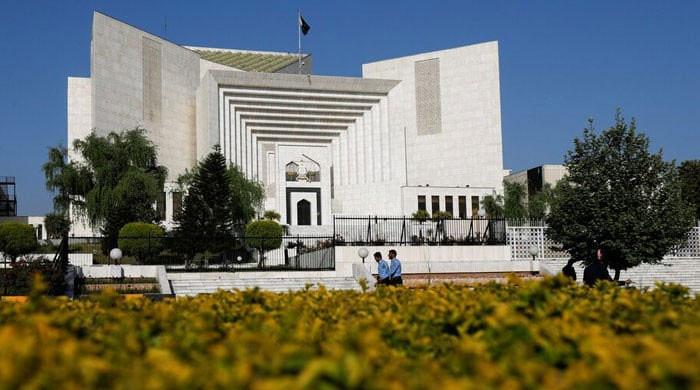- Plea urges court to strike down Act to prevent legal crises.
- Raises national interest, freedom of expression arguments.
- Terms law “ultra vires” to constitutional power of legislature.
ISLAMABAD: The ruling coalition government’s amendments to the controversial Prevention of Electronic Crimes Act (Peca) have been challenged in the Supreme Court on Tuesday.
“It is humbly requested in the national interest of peace, and stability both the amendment and existing law may kindly be reviewed in the full court bench in the light of the freedom of expression of our opinion and view to disseminate to our society,” reads the plea.
Muhammad Qayum Khan, in his petition, has requested the SC to declare amendments to the Peca as “ultra vires” to the constitutional power of the legislature while terming the tweaks as “extremely repugnant against the human rights, fundamental rights and rights of freedom of expression, speech”.
Urging the apex court to immediately strike down the Act to prevent new legal crises, the plea also wants the existing law, approved by previous governments, to be revisited in light of the Constitution.
“We live in the global village where all human beings have equal human rights and such hurting and targeting the opponents could not be sustained and must be restricted along with the current Peca,” the petition says.
The development comes as ruling coalition bulldozed the controversial amendments from both the National Assembly and the Senate to an already contentious Peca law within days with the opposition parties, journalists and media bodies decrying the lack of consultations as well as its provisions.
The law, which has now come into effect following President Asif Ali Zardari’s assent, provisions new definitions, the establishment of regulatory and investigative bodies, and stricter penalties for disseminating “false” information.
The new amendments lowered the punishment for spreading “fake information” online to three years while the offender could also face a fine of up to Rs2 million.
The new amendments also proposed the establishment of the Social Media Protection and Regulatory Authority (SMPRA), the National Cyber Crime Investigation Agency (NCCIA) and the Social Media Protection Tribunal.
Furthermore, it stated, that any person “aggrieved by fake and false information” can approach the authority for removal or blocking access to such information and the authority would issue orders no later than 24 hours on the request.
The fresh changes also stated that the authority might require any social media platform to enlist with it in any manner, form and on payment of such fee as may be prescribed.
Additionally, the new amendments also proposed the constitution of a Social Media Complaint Council to receive and process complaints made by aggrieved parties against violation of any provision of the cybercrime law.
It also proposed the establishment of Social Media Protection Tribunals that will resolve cases within 90 days, with appeals allowed to the Supreme Court within 60 days.

